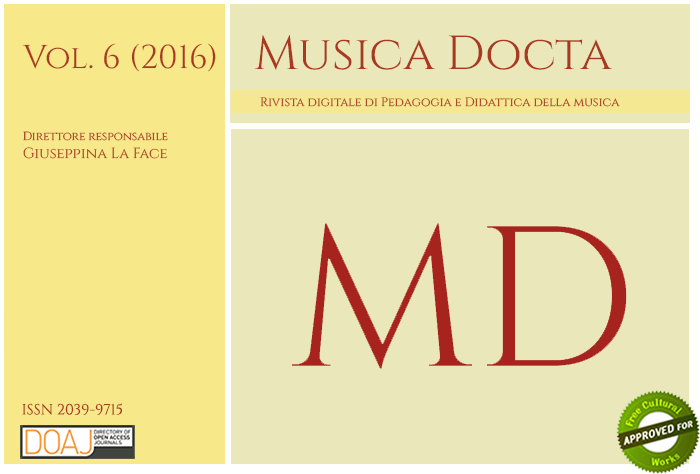Listening to the Dead: Toward 21st-century Music Histories
DOI:
https://doi.org/10.6092/issn.2039-9715/6566Parole chiave:
History, Diaspora, Empire, ConsumptionAbstract
This paper assumes as a premise that music histories, like all histories, result from a conscious choosing of one’s cultural ancestors. By asking who ‘the ancestors’ would logically be for musicians active in the contemporary United States, it implies the connections between institutional music histories and the ideological formation of local or national identities, and acknowledges the increasing difficulty of managing those connections in an era of widespread migration and the oft-proclaimed decline of nation-states in favor of globalizing entities. Determinedly recommending neither universal or global adjustments to music historical pedagogy, it asserts profound structural changes in music history curricula as inevitable, names the network of economic and ideological interests against which curricular reformers struggle, and reaffirms the relevance of music history as a way to learn from the dead how it could be to be human.
Downloads
Pubblicato
Come citare
Fascicolo
Sezione
Licenza
Copyright (c) 2016 Suzanne G. Cusick
I diritti d'autore di tutti i testi nella rivista appartengono ai rispettivi autori senza restrizioni.
La rivista è rilasciata sotto una licenza Creative Commons Attribuzione Condividi allo stesso modo 4.0 Internazionale (codice legale completo).
Vedere inoltre la nostra Open Access Policy.
Metadati
Tutti i metadati dei materiali pubblicati sono rilasciati in pubblico dominio e possono essere utilizzati da ognuno per qualsiasi scopo. Questi includono i riferimenti bibliografici.
I metadati – riferimenti bibliografici inclusi – possono essere riutilizzati in qualsiasi formato senza ulteriori autorizzazioni, incluso per scopo di lucro. Chiediamo cortesemente agli utenti di includere un collegamento ai metadati originali.






